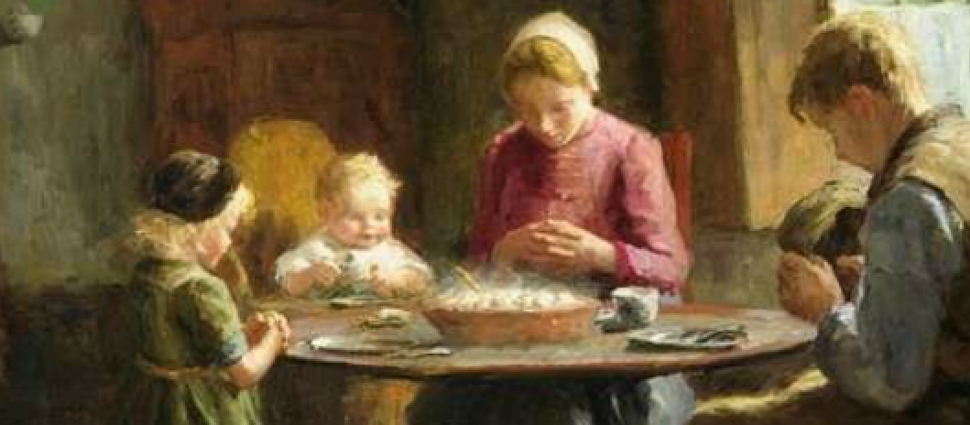The Family Altar (2)

Jul 27, 2017
In The Family Altar, the Puritan writer Oliver Heywood makes the case for family or household worship. We have already discussed Heywood’s belief that family worship is essential for the proper functioning not only of the family, but also the Church and wider society. We must now consider exactly what he meant when he spoke of a family altar: “By altar I mean (considered as an instance of synecdoche) all the worship of God to be performed in families” (The Whole Works of the Rev. Oliver Heywood, Volume 4:305). He also said: “Christian families are churches, and churches must have altars for God’s worship” (4:320).
Perhaps it sounds strange to refer to a family as a church. In fact, Heywood focused on three different spheres in which worship takes place: the congregation, the family, and in private. He never intended for worship at the family level to take away from the ministry of the Word to the congregation, and he used an analogy between the two to clarify that only certain families can be thought of in that way.
“That is no church where there is no altar of God, but it is a synagogue of Satan. We cannot call every family a church, but a Christian pious family; and it is so called by the analogy or resemblance it bears to a church, from the worship of God maintained therein” (4:321). A truly religious family, according to Heywood, will “maintain God’s worship according to God’s institution, where the daily perfume of prayer ascends heavenwards” (4:319).
By family or household, Heywood meant all the people living under the same roof, whether or not they were related by blood. This would include the father, mother, children, and any servants. Nearly all of his book is addressed to men who were the heads of households. “But indeed the proper constituent, essential parts of a family are but these two, such as govern, and such as are governed. And ordinarily the person governing must set up this altar, and order the worship of God in his house or family together with the rest…” (4:309)
One of the chief biblical examples to which Heywood appeals is Jacob. He draws from this Old Testament patriarch to make the point that fathers serve as prophets, priests, and kings in their own household. “As holy Jacob, the famous patriarch, was a prophet to instruct his family in the true religion, and a king to govern them for God; so a priest to set up an altar, offer sacrifices and perform religious worship for and with his family: even the poorest man that has a family is to be a prophet, priest, and king in his own house.”
Once again, it may seem odd to speak of a father as being a prophet, priest, and king. Heywood certainly did not mean to imply by this that all heads of household receive the special gift of prophecy, that they ought to be offering up literal sacrifices, or that they were permitted to act as tyrants. He used this biblical model as an example for how husbands and fathers should take the initiative in instituting family worship and encouraging the spiritual development of the other members of the household. Importantly, he never saw this position as being one and the same with an ordained minister or usurping the ordinary means of grace in the church congregation.
“A master of a family should teach all under his charge as a master, yet not usurp the office of a minister, without a due call,” he wrote. “His teaching must not be in opposition, but in subordination to ministerial instruction; as families are subordinate to churches” (402-403). Here again, we see how Heywood viewed the different spheres of Puritan worship – congregational, family, and private – and wished for them to complement one another rather than being in opposition. He firmly believed that “the more a Christian is conversant with God and his family, the more will he prize and improve public ordinances” (4:308).
Even as family worship was a means to improve congregational worship, Heywood also taught that private prayer, often referred to as “closet prayer”, was an essential preparation for all other activities, including participation in household prayer. “Converse with God alone: first pray in your closets, and then you will be better able to pray in your families, both as to matter and manner: a frequent exercise of closet prayer will move you to converse with God: there you will find that God will suggest words to your minds, which you may employ in your families in prayer, and this course will embolden you before others…” (4:384)
We have now seen how family worship fits in with other forms of worship. In the next article, we will look at what Heywood believed should be the content of family worship times and some practical ideas for instituting this practice.





